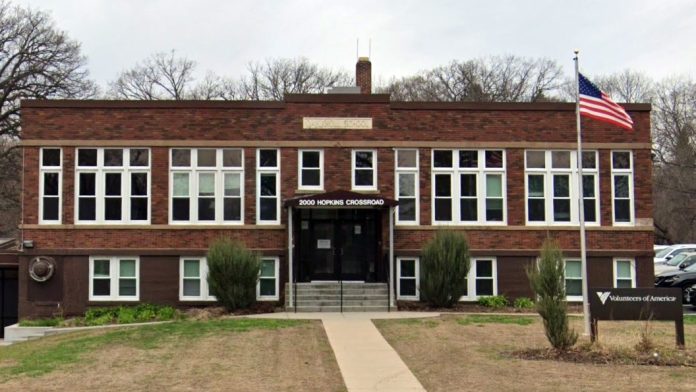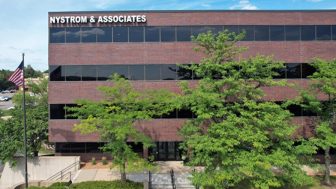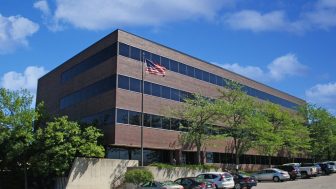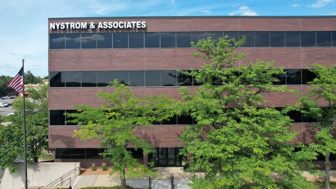Childrens Residential Treatment Center
Closed: Please See Nearby Facilities
Minnetonka, Minnesota

About Childrens Residential Treatment Center
The Children’s Residential Treatment Center (CRTC) was a mental health treatment center in Minnetonka, Minnesota that served youth aged 11 to 17. The center is now closed. They could address a variety of mental health and behavioral issues, including eating disorders, trauma, mood disorders and anxiety. Youth with a history of substance use could have those issues addressed in the program as well.
The CRTC accepted private health insurance as well as Medicaid coverage. They enrolled both boys and girls based on sex assigned at birth and offered an inclusive environment for LGBTQ+ youth.
Residential Treatment for Troubled Youth in Minnesota
The length of stay at CRTC varied depending on each young person’s needs and progress in the program, and the average stay was six to nine months. The program offered individual and group therapy focused on dialectical behavior therapy (DBT) as well as family therapy.
I thought it was interesting that one of the core approaches was milieu therapy, which is focused on structure and a therapeutic culture to foster trust and respect while building social skills. They also used trauma focused therapy when appropriate.
There was also a basic drug and alcohol education component, and youth with a history of substance use could have counseling for that built into their therapy sessions. The program had onsite schooling and the credits earned would transfer back to the youth’s school district after they finished treatment.
Recreation at the Children’s Residential Treatment Center
Having a way to unwind and have fun is important in most treatment programs, and especially so with children. The CRTC provided a variety of activities to teach cooperation, social skills and the good use of free time.
Activities included visiting the YMCA and local parks as well as enjoying non contact sports like kickball, basketball, softball and flag football.
Amenities
Addiction treatment programs provide an opportunity to get your life back on track with access to school classes or college courses. Whether you want to finish your GED or go back to school to learn a new trade, facilities often enlist tutors and teachers who are certified or licensed by the state to oversee self-study or distance-learning education.
Private drug rehab provides a comfortable, secure environment that allows you to focus on doing the work to get your life back on track. Benefits include a higher staff-to-client ratio, increased one-on-one time with therapists and healthcare providers, private rooms for clients, and customized forms of therapy.
Residential drug rehab provides the comforts of home with the therapeutic support needed to successfully recover. Benefits of an inpatient program include increased safety, a higher success rate, and the time and distance given to focus on recovery. Residential drug rehabs are often the preferred method of treatment, as they can be tailored to meet specific needs, offer focused therapeutic care, and provide the necessary tools to sustain recovery.
Addiction Treatment Programs
The goal of alcohol rehab in Minnesota is to help you make mental and behavioral changes that lead to recovery and long-term sobriety. Most methods rely on a combination of group and individual counseling to accomplish these goals.
Cognitive behavioral therapy in Minnesota is based on rapid, action-focused treatment. This works well for 60 to 90-day rehab programs by providing participants with immediate and effective coping techniques.
EMDR Therapy is a neurobiological treatment modality used to address trauma disorders and related mental and behavioral health challenges. Short for eye movement desensitization and reprocessing, EMDR is designed to help clients cope with distressing memories and emotions, including fear, sadness, and anger. EMDR may help clients in addiction recovery manage the psychological and emotional triggers that contribute to substance misuse and/or addiction relapse.
During women’s rehab in Minnesota, women participate in evidence-based therapies to treat their substance use disorders. Therapy methods include individual, group, family, cognitive-behavioral, and dialectical behavior therapy.
Individuals who attend men’s rehab in Minnesota can expect to spend much of their days in therapy sessions. Therapy is focused on men only, and teaches men how to control urges and cravings and live a healthy, sober lifestyle.
After evaluating your needs and budget, staff at opioid rehab in Minnesota will help you determine the length of your treatment and its intensity level, to properly address your degree of opioid dependence. Most programs include detox, addiction therapy, specialized care, and aftercare support.
During women’s rehab in Minnesota, women participate in evidence-based therapies to treat their substance use disorders. Therapy methods include individual, group, family, cognitive-behavioral, and dialectical behavior therapy.
Recovery is not the same for young adults as it is for older individuals. A young adult program in Minnesota treats the patient as a whole, addressing unique life-stage challenges, dual diagnosis issues, and substance abuse.
Levels of Care
If you choose inpatient drug rehab in Minnesota, often referred to as residential rehab, you’ll receive 24/7 care while living at the rehab facility. Typical treatment services include individual and group therapy, medication management, and relapse prevention education.
For months or years after achieving initial sobriety, aftercare rehab in Minnesota gives you access to resources that help you maintain sobriety after treatment. You can receive support through 12-step groups, ongoing counseling, and financial coaching.
Left untreated, mental disorders complicate substance abuse disorders and make addiction treatment ineffective. Dual diagnosis treatment in Minnesota addresses both, making it ideal for those who have co-occurring disorders.
Accreditations
Find Rehab Centers Near Minnetonka

11812 Wayzata Blvd
Suite 120
Minnetonka, MN 55305

11812 Wayzata Blvd
Suite 120
Minnetonka, MN 55305

13100 Wayzata Boulevard
Suite 200
Minnetonka, MN 55305

115 Forestview Ln N
Plymouth, MN 55441